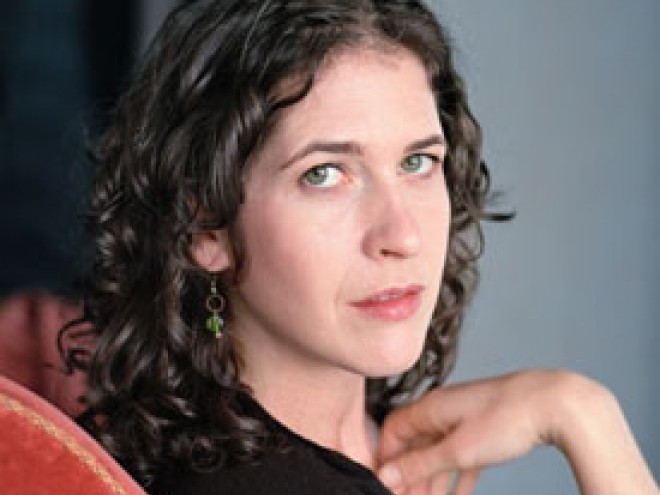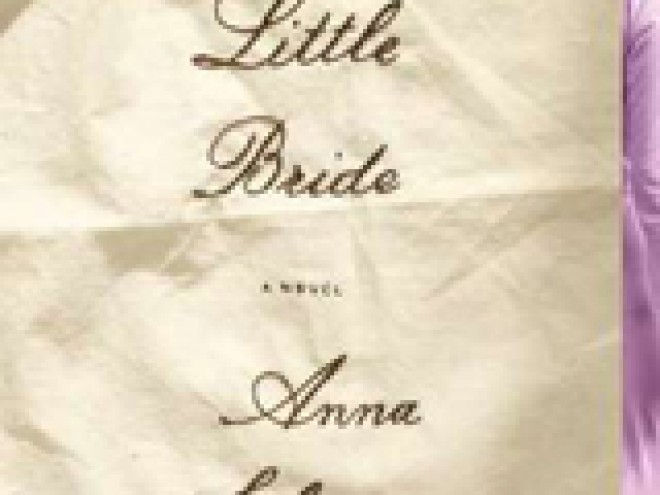Excerpted from Leaving Lucy Pear: A Novel by Anna Solomon
If they were coming, this was the night. The pears had stayed yellow and hard for so long that Bea had started to despair, but they were finally ready to pick. The moon was a quarter full. The afternoon’s wind had gone limp. Midnight came and went. Bea counted to five hundred for extra measure — silently, so she wouldn’t wake the nurse — then she took up the infant from its bassinet, wrapped it in her aunt Vera’s angora shawl, and crept down the cellar stairs in her bare feet.
The stairs to the cellar were granite, and cold. The original wooden ones had burned with the original wooden house in 1873. Bea did not know about the fire but she could smell it, because the cellar was the one part of the house that hadn’t needed rebuilding and its walls retained the flavor of ash. She moved toward the bulkhead door as fast as she could, feeling along the wall with her free hand, careful not to bump the handles of shovels and hoes, though the shovels and hoes had been through far worse. They had witnessed flood and fire. They had been variously cared for and abused by generations of gardeners, had been used to plant tulips and to dig graves. They had even, once upon a time, been in the presence of another unwed mother and her infant. Knowing this might have put Bea’s own suffering in perspective. But she did not know and she had not been taught perspective. She was eighteen, the daughter of ascendant Boston Jews who had sent her away to Eastern Point in a black, curtained limousine the day she started to show.
The bulkhead door was heavier than she expected, its diagonal slope demanding that it be lifted as much as pushed. She had unlocked it from the outside before going to bed but she hadn’t tested its weight and now the thing didn’t budge. She pressed harder. The cellar was her only way out — she had tested the doors on the first floor and every one either shrieked or squeaked or groaned. She pushed again. If she put the baby down, it would cry. Bea started to pant with panic. The cellar roof seemed to be dropping, the walls squeezing. She climbed the bulkhead steps until she was bent nearly in two, the infant squeezed into the small space between her thighs and chest, and tried to open the door with her back. Her legs shook. Sweat sprang at her neck. She was still soft and weak from the birth two weeks before, her right eye bloodshot though she had no memory of pushing, no memory of any of it, nothing until a baby was being handed to her, clean and silent, like a doll her mother had bought. She was lucky, Bea understood — Aunt Vera had hired a doctor who had studied in Germany with the father of twilight sleep. There had been morphine, there had been scopolamine — these, according to Aunt Vera, would do more to liberate women than the vote. Bea understood that she was supposed to understand herself to be lucky. She understood that she must have pushed, and that she should be glad not to remember. She pushed now, using her neck, her shoulders, every muscle in her body. At last the door gave an inch, then two, then lightened so quickly Bea was following it — she had to scramble to catch up before it slammed on the ground outside. She looked behind her, above. The hinge had given a sharp cry. She went stiff waiting for another sound, the nurse’s heavy footsteps, her heavy call: Beatrice? She waited until her breath came and quieted her heart. Then she stepped out into the night.
 Through the near trees she could see the far ones in the orchard down below. Slowly, her eyes adjusted, and she saw the pears themselves, their waxy orbs glowing greenly in the three-quarter dark. Her mouth watered and Bea, embarrassed by this bodily secretion, turned her thoughts to her Plan.
Through the near trees she could see the far ones in the orchard down below. Slowly, her eyes adjusted, and she saw the pears themselves, their waxy orbs glowing greenly in the three-quarter dark. Her mouth watered and Bea, embarrassed by this bodily secretion, turned her thoughts to her Plan.
Walk to orchard.
Wake infant.
Nurse infant.
Change infant.
Check inside paper sack: extra diapers, two bottles, four cans of Borden’s evaporated milk, five twenty-dollar bills.
Set infant under most plentiful tree.
Run.
From Leaving Lucy Pear: A Novel by Anna Solomon, published on July 26, 2016 by Viking, an imprint of Penguin Publishing Group, a division of Penguin Random House LLC. Copyright by Anna Solomon, 2016.
Related Content:
- Read more book excerpts
- Pear and Almond Tart Recipe from The Kosher Baker
- Leave Me: A Novel by Gayle Forman
Anna Solomon is the author of Leaving Lucy Pear and The Little Bride, and a two-time winner of the Pushcart Prize. Her short fiction and essays have appeared in publications including The New York Times Magazine, One Story, Ploughshares, Slate, and more. Coeditor with Eleanor Henderson of Labor Day: True Birth Stories by Today’s Best Women Writers, Solomon was born and raised in Gloucester, Massachusetts, and lives in Brooklyn with her husband and two children.




